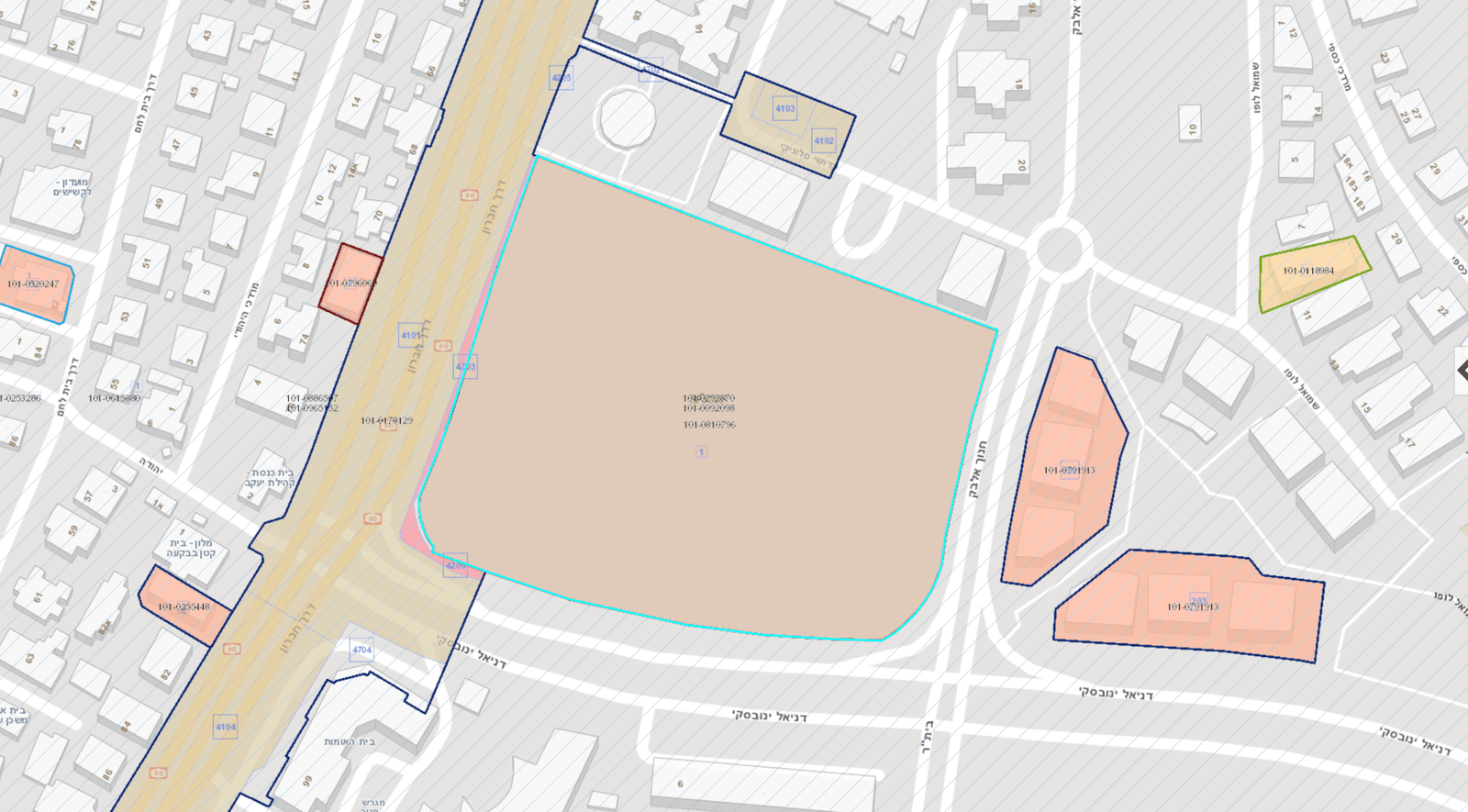An open letter calls on Krueck Sexton Partners to withdraw from project to design new U.S. Embassy in Jerusalem
A circulating open letter calls on Chicago-based architecture firm Krueck Sexton Partners (KSP), to disengage with a project that would build a new U.S. Embassy in Jerusalem and move Israel’s capital to Jerusalem. The letter is in reference to a proposed plan from former President Donald Trump to build a new embassy in occupied Jerusalem on a site referred to as the “Allenby Barracks”—property that was “illegally confiscated from its original Palestinian owners.” (Allenby Barracks was used by the British army in the early 20th century, and its name refers to the British General Edmund Allenby.) Since taking office, President Biden has not called off the contentious plan.
The letter denounces the proposed embassy location as a violation of international law, argues that it goes against the obligations of several signed diplomatic conventions, and even claims that the effort violates the “statement of our values” put forth by the AIA. It calls for KSP and other contractors to pull out of the project.
Under the proposed plan, the U.S. Embassy and the Israel Land Authority would situate a new embassy building on a 7.7-acre plot in Jerusalem. Since 1989, the United States has leased this land from Israel for an annual rate of $1. The lease has a 99-year term and is renewable. The new building would include offices, residential quarters for staff, parking lots, and security buildings.
This land was obtained by Israel under the Absentees’ Property Law – 1950, a piece of legislation concerning property once owned by Palestinians who were forced to flee following conflict in 1948. The current open letter denounces the Absentees’ Property Law as “discriminatory,” a sentiment echoing that of an objection The Legal Center for Arab Minority Rights sent to The Jerusalem District Planning and Building Committee, U.S. Ambassador to Israel Thomas R. Nides, and Secretary of State Antony Blinken, earlier this year.
The letter lists laws and codes it believes the proposed embassy’s construction to be in violation of. Among this Jerusalem’s special corpus separatum, the Vienna Convention, Article 46 of the Hague Regulations, and the U.S. Constitution’s Fifth Amendment’s Takings Clause. It goes on to criticize “architecture institutions and practices,” suggesting they reexamine their “ethical responsibilities and accountability.” It also cites the AIA’s “statement of our values” which calls for “fair housing policies, civil rights protections, and accessibility to the built environment for all.”
Since March 1, over 100 individuals, mostly architects and academics from around the globe, have signed the letter in support of the initiative. Notable signatories include Emanuel Admassu, AD—WO; Tei Carpenter, Agency—Agency; Tizziana Baldenebro, SPACES and cocurator of the American Pavilion at the upcoming Venice Architecture Biennale; Sumayya Vally, Counterspace Studio; Jaffer Kolb, New Affiliates; Ivi Diamantopoulou, New Affiliates; Keller Easterling, Yale School of Architecture; David Gissen; Cruz Garcia, WAI Architecture Think Tank; Anne Holtrop, Studio Anne Holtrop; Charlotte Malterre-Barthes, Swiss Federal Institute of Technology Lausanne (EPFL); Felicity Scott, Columbia University; Eyal Weizman, Forensic Architecture; Michael Young, The Cooper Union; and Wolff Architects, among others.
The letter states:
We, the undersigned, are writing this letter in regard to the proposed plan of the U.S. government to double down on Trump’s plan to build a new embassy compound in occupied Jerusalem. The proposed embassy is planned to be built on a plot of land – the “Allenby Barracks” – that was illegally confiscated from its original Palestinian owners. Concerned with the ethical implications of this project for the architecture profession, we are calling on the Chicago-based architecture firm Krueck Sexton Partners (KSP), and other companies complicit in this plan, to immediately withdraw from the Israeli planning process and stop their participation in and endorsement of Israel’s illegal seizures of Palestinian land in Jerusalem.
It continues:
The historical ownership of this land is well-documented; notably, through documents from the Israel State Archives, which confirm that most of the Allenby Barracks site is land that belongs to Palestinians forcibly displaced from their homes by the state of Israel in 1948. Several of the owners and their descendants are now U.S. citizens, to whom the U.S. owes additional obligations regarding the protection of their property. The U.S. Department of State has duties both under agency rules to protect the overseas property interests of its citizens and under the U.S. Constitution, whose Fifth Amendment’s Takings Clause prohibits the extralegal governmental confiscation of such property. As project architects, Krueck Sexton Partners are complicit in the U.S. State Department’s participation in the violation of the property rights of its own citizens.
And it concludes:
[Krueck Sexton Partner’s] participation in the plan for the US embassy in Jerusalem stands in direct opposition to above-mentioned values, and the values of leading architectural practitioners, scholars, and organizations in the U.S. and worldwide, as demonstrated by the list of signatories below. Ethics do not cease to be applicable across borders. Palestinians cannot inhabit, sustain livelihoods, nor plan for and improve their environment without access to their own lands due to illegal land confiscation. The plan for the US embassy project in Jerusalem is a clear ethical case that demands the refusal of architects to participate in the ongoing dispossession of Palestinians in Jerusalem.
We call on Krueck Sexton Partners to immediately withdraw from the U.S. Embassy project in Jerusalem and refuse to be complicit in a project that will cause irreparable harm to Palestinian people and Palestinian rights.
The full letter can be read here.
Krueck Sexton Partners did not respond to AN’s request for comment.




